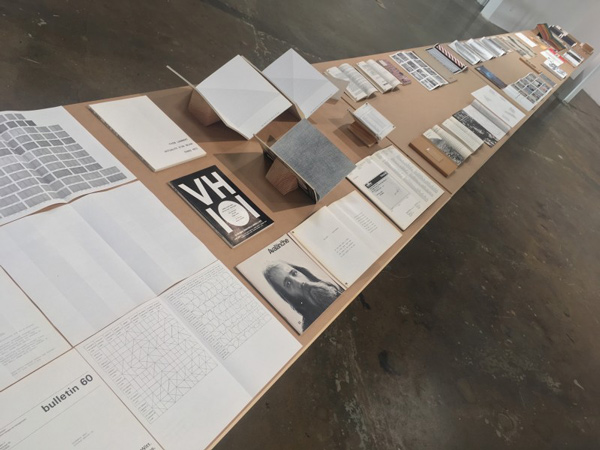Sol LeWitt was (and still is) a major influence in the realm of conceptual thinking. During his lifetime (1928-2007) he championed and supported many artists, and over the years his influence has become widespread. LeWitt was among the first to create not only site specific wall drawings, but he also thought of the printed page as a viable medium for artistic exploration and intervention. “Interlude: Sol LeWitt, Page-Works 1967-2007” serves as an introduction to this lesser known, but vital aspect to his practice. These works are neither unique drawings nor signed and numbered editions, but are widely distributed “page art” created as flyers, inserts or made specifically for magazines and books.
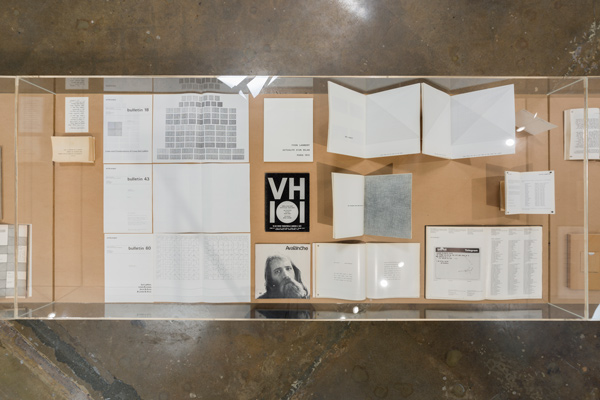
Interlude: Sol LeWitt, Page-Works 1967-2007, installation view. Courtesy of LAXART.
At first glance, the gallery seems empty except for a long vitrine that extends diagonally across the gallery. The vitrine contains announcement cards, flyers, catalogues, magazines and books, each opened to LeWitt’s contribution. Whether a drawing, photograph or writing, LeWitt was committed to creating artworks for the printed page. He utilized offset printing and different types of mechanical reproduction in recognition that the printing process was a viable medium for the creation and distribution of artworks. On view are both commercial and artist’s publications for which he created artworks including: Artforum, Studio International, Art & Project Bulletin, Noise, Unmuzzled Ox, Extra, Vision, Avalanche, VH101, Double Page, Cahier Intempestifs and 0 to 9.
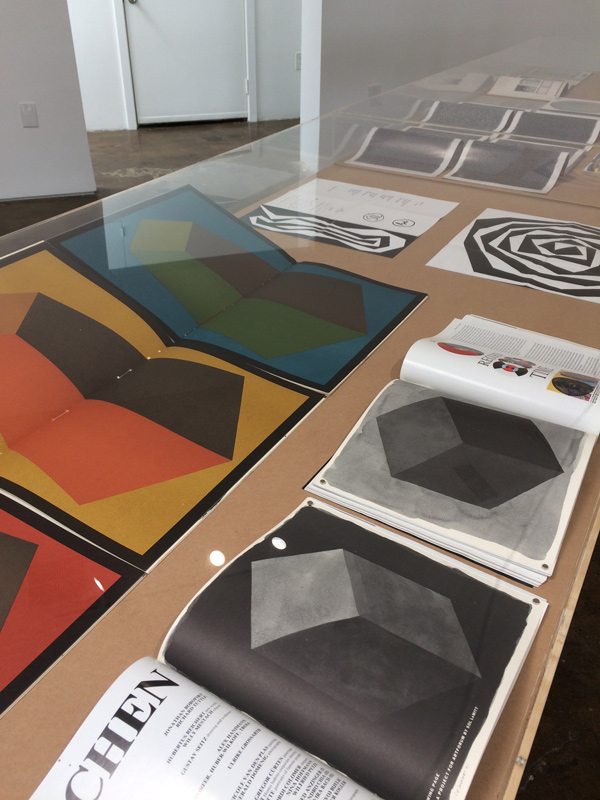
Interlude: Sol LeWitt, Page-Works 1967-2007, installation view. Photo: Jody Zellen.
For some artists, page art is a curious concept— why create a unique original for the printed page? Why not just reproduce an existing piece? LeWitt’s attitude took into consideration context, audience and the ephemeral nature of the printed page. He considered these contributions site specific artwork—akin to his wall drawings that only existed for the duration of an exhibition. His page art often ended up in the trash. But that never mattered.
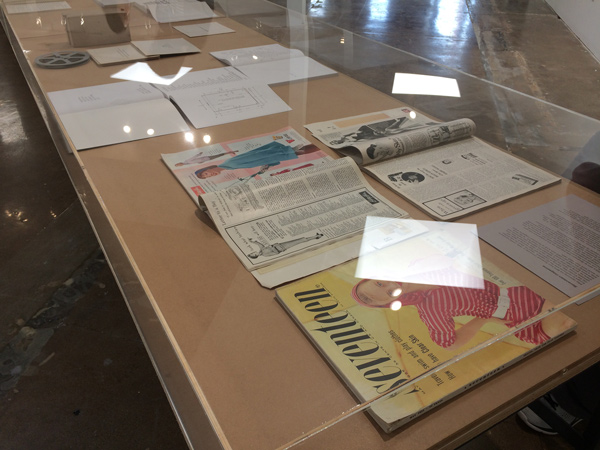
Interlude: Sol LeWitt, Page-Works 1967-2007, installation view. Photo: Jody Zellen.
Core to LeWitt’s process was an exploration of the relationship between art and idea. His thoughtful contributions to magazines were often created specifically for the intended publication and paralleled his larger body of work. Included here are notations for three wall drawings that have been executed on the gallery walls. His wall drawings were sets of instructions that could be carried out by anyone. They were carried out by fabricators, who drew repeated shapes and lines onto the wall for the duration of an exhibition. At the exhibitions close the artwork was painted over.
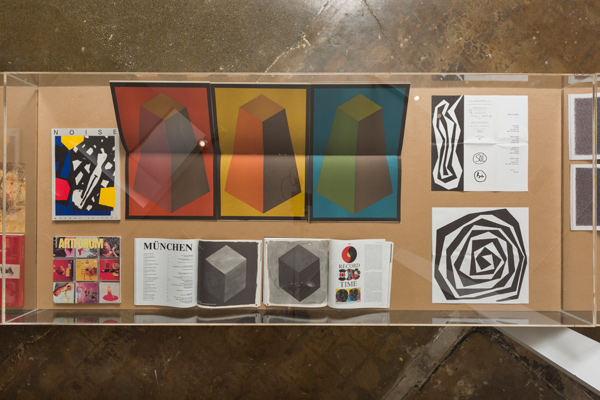
Interlude: Sol LeWitt, Page-Works 1967-2007, installation view. Courtesy of LAXART.
Like the printed page, LeWitt saw the gallery wall as an open-ended canvas. Although this exhibition is no way all inclusive, it is an amazing opportunity to view a selection of LeWitt’s printed artworks and three wall drawings and consider scale and permanence. It is particularly interesting to do so in the digital age and to think of his work in the context of reproduction, be it mechanical, hand-made or code-based.
Interlude: Sol LeWitt, Page-Works 1967-2007, September 30 – October 27, 2018, at LAXART, 7000 Santa Monica Blvd., Hollywood, CA 90038. laxart.org/

